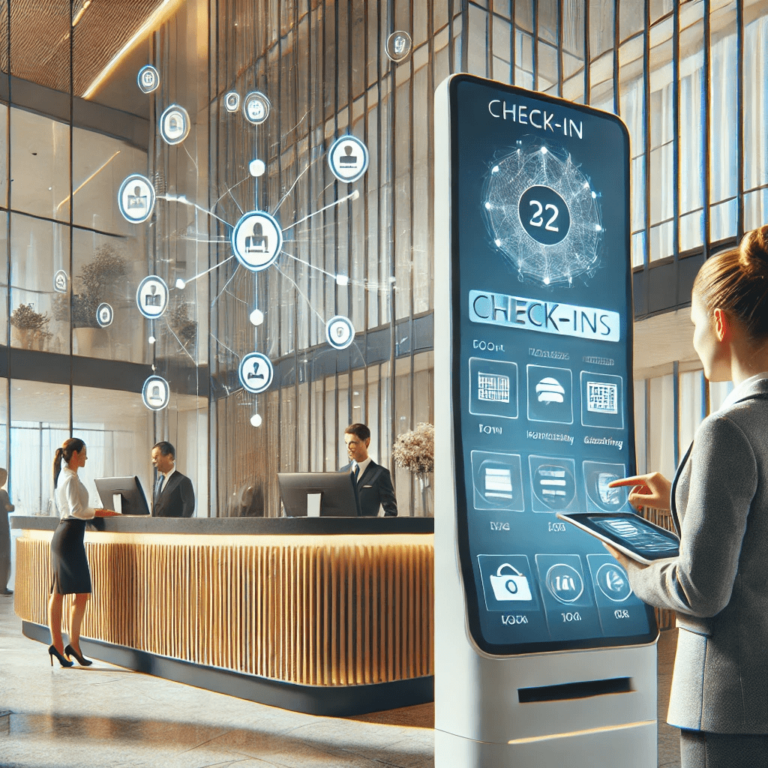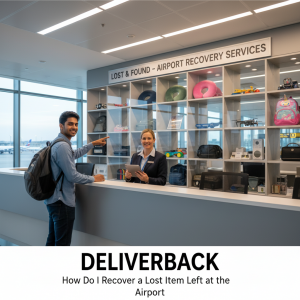Effective hotel operations are the backbone of any successful hotel, impacting everything from guest satisfaction to profitability. In this comprehensive guide, we’ll cover essential aspects of hotel operations, explore how technology is transforming the industry, and dive into new areas like Lost and Found Management and shipping services. Whether you’re managing a small boutique hotel or a large chain, understanding how to optimize hotel operations is crucial to staying competitive.
Table of Contents:
- What Are Hotel Operations?
- Key Aspects of Hotel Operations
- Technology’s Role in Hotel Operations
- Lost and Found Management in Hotels
- Deliverback: Simplifying Hotel Shipping and Lost Item Returns
- Strategies to Optimize Hotel Operations
- Sustainability and Hotel Operations
- Conclusion
1. What Are Hotel Operations?
Hotel operations refer to the management of all activities that contribute to the daily functioning of a hotel. These include managing the front desk, housekeeping, maintenance, food and beverage services, guest relations, and more. Successful hotel operations ensure that all of these processes work together seamlessly to deliver exceptional service to guests while maintaining efficiency and profitability.
By keeping hotel operations well-organized and optimized, you improve the overall guest experience, increase staff productivity, and contribute to the long-term success of the property.
2. Key Aspects of Hotel Operations
The core components of hotel operations involve several crucial departments. Understanding and optimizing these areas is vital for delivering high-quality service:
Front Desk Management
The front desk is the heart of any hotel. It’s the first and last point of contact for guests, so a smooth check-in and check-out process is essential. Front desk operations must be streamlined to reduce wait times, handle guest requests efficiently, and resolve any issues promptly.
Housekeeping
Cleanliness and hygiene are non-negotiable in hospitality. Housekeeping is a central part of hotel operations, ensuring rooms are cleaned thoroughly and quickly between guest stays. The integration of smart tools like housekeeping management software can help hotels optimize room cleaning schedules and monitor quality.
Maintenance
Preventive maintenance ensures that the hotel’s infrastructure, from elevators to air conditioning units, runs smoothly. Efficient maintenance not only improves guest satisfaction but also prevents costly repairs down the line.
Food and Beverage Services
Dining is an important aspect of the guest experience, and the coordination of kitchen, service, and inventory management plays a key role in hotel operations. Implementing restaurant management systems can streamline these operations and ensure prompt, quality service.
Guest Relations
Ensuring excellent guest communication is crucial for hotel operations. From handling guest complaints to assisting with special requests, a robust guest relations strategy is key to building loyalty and increasing positive reviews.
3. Technology’s Role in Hotel Operations
Technology is revolutionizing hotel operations, enabling hotels to increase efficiency and improve the guest experience. Several key technologies are transforming the way hotels manage their operations:
Property Management Systems (PMS)
A robust PMS is central to modern hotel operations. It helps manage reservations, check-in/check-out processes, room allocation, and billing. With the rise of cloud-based PMS, hotels can access real-time data from anywhere, improving operational agility.
Mobile Check-In and Self-Service Kiosks
To reduce wait times at the front desk and offer guests more convenience, many hotels are adopting mobile check-in solutions and self-service kiosks. This technology is a game-changer in enhancing guest satisfaction while reducing labor costs.
Housekeeping and Maintenance Automation
Hotels are increasingly using automation to optimize housekeeping and maintenance tasks. Digital tracking systems ensure that cleaning schedules are adhered to, and maintenance requests can be prioritized efficiently.
Data Analytics for Personalized Service
Personalizing the guest experience is a significant trend in modern hotel operations. Using data analytics, hotels can gather information on guest preferences and tailor services accordingly. Personalized touches, such as room preferences or amenity requests, can elevate the guest experience.
4. Lost and Found Management in Hotels
One often-overlooked aspect of hotel operations is managing lost and found items. Guests frequently leave behind personal belongings, and a streamlined system to manage these items can enhance the guest experience and improve operational efficiency.
Key Strategies for Lost and Found Management:
- Centralized Tracking: Implementing a digital lost and found system allows staff to log items and track inquiries. This ensures that items are properly cataloged and easy to retrieve when guests contact the hotel.
- Quick Response: Responding to lost item inquiries promptly can turn a potentially negative situation into a positive one for guests. An efficient lost and found management system will help maintain a good relationship with guests even after their stay.
5. Deliverback: Simplifying Hotel Shipping and Lost Item Returns
One of the innovations improving hotel operations is Deliverback, a service that allows hotels to easily return lost items or manage shipping for guests. Deliverback offers an efficient solution for both guests and hotel staff.
Hotels can use Deliverback to:
- Manage Lost and Found Items: Quickly ship items that guests have left behind, enhancing the guest experience and boosting customer loyalty.
- Offer Shipping Services: Deliverback can also be used by hotels to offer convenient shipping options for guests who want to send packages during their stay. This makes the process of shipping luggage or parcels seamless and integrated into the overall hotel operations.
Deliverback’s streamlined platform makes it easier for hotels to handle these logistical tasks, allowing staff to focus on other areas of service.
6. Strategies to Optimize Hotel Operations
Improving hotel operations requires both strategic planning and the use of technology. Here are some practical ways to optimize operations for better efficiency and guest satisfaction:
1. Invest in Training and Development
Continuous staff training ensures that employees are well-equipped to handle their roles. A well-trained staff is essential to smooth hotel operations. Invest in both soft skills training (such as guest interaction) and technical training (using new systems).
2. Implement Real-Time Communication Tools
Effective communication is key to running seamless hotel operations. Using real-time communication tools, such as mobile apps for staff, can help improve coordination between departments like housekeeping and the front desk.
3. Use Data-Driven Insights
By leveraging data analytics, hotels can identify patterns and areas for improvement in their operations. For instance, analyzing guest feedback can provide insights into areas where hotel operations can be improved, such as faster check-in processes or better room cleanliness.
4. Adopt Green Initiatives
Sustainability is an increasingly important aspect of hotel operations. Incorporating eco-friendly practices like reducing energy consumption or eliminating single-use plastics not only benefits the environment but also appeals to environmentally conscious travelers.
7. Sustainability and Hotel Operations
Sustainability is more than just a trend in the hotel industry; it’s becoming a core part of efficient hotel operations. Hotels are increasingly adopting eco-friendly practices to meet the demands of today’s environmentally-conscious travelers.
Key Sustainability Practices in Hotel Operations:
- Energy Efficiency: Installing smart thermostats and energy-efficient lighting reduces energy consumption while keeping guest comfort intact.
- Water Conservation: Encouraging guests to reuse towels and installing low-flow faucets helps reduce water usage, contributing to greener hotel operations.
- Waste Reduction: Recycling programs and reducing single-use plastic items are simple ways for hotels to minimize waste.
Sustainability initiatives not only lower operational costs but also enhance the hotel’s reputation, attracting guests who prioritize eco-friendly travel.
Conclusion
Mastering hotel operations is essential to delivering an outstanding guest experience and ensuring long-term success. From front desk management to housekeeping, maintenance, and guest relations, optimizing every aspect of hotel operations is key to running a smooth and profitable hotel.
By incorporating innovative technologies, investing in staff training, and implementing sustainable practices, hotels can stay ahead of the curve. Additionally, embracing services like Deliverback for managing lost items and shipping offers an extra layer of convenience for both guests and staff, enhancing the overall guest experience.
The future of hotel operations lies in the ability to adapt, innovate, and maintain a strong focus on guest satisfaction, all while improving efficiency and reducing costs.


